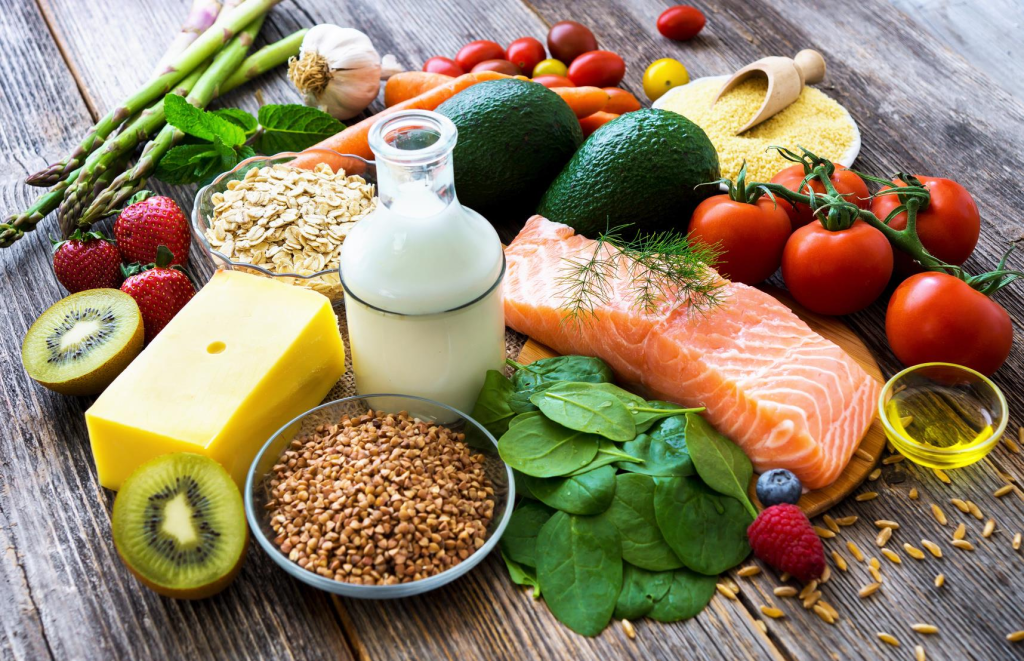Following a Mediterranean Diet to Increase IVF Success: What the Research Says
Following a Mediterranean Diet to Increase IVF Success: What the Research Says
Introduction
In vitro fertilization (IVF) has become a popular option for couples struggling to conceive. The success of IVF depends on various factors, including ovarian reserve, ovarian stimulation, fertilization, embryo development, and implantation. However, recent research suggests that diet and certain supplements may play a crucial role in increasing the chances of successful IVF. One diet that has gained attention is the Mediterranean diet, known for its emphasis on whole foods and healthy fats. In this article, we will explore the findings of multiple studies and delve into how following a Mediterranean diet may improve IVF success rates.
The Link Between Diet and IVF Outcomes
Research has shown that diet can significantly impact fertility in both men and women. Diets high in trans fats, refined carbohydrates, and added sugars have been associated with decreased female fertility. Therefore, it is essential to investigate how specific diets influence the success of IVF. A recent systematic review published in Reproductive Biomedicine Online (RBMO) examined 27 studies to determine the role of nutritional interventions in IVF outcomes.

The Mediterranean Diet and IVF Success
One dietary pattern that stood out in the review was the Mediterranean diet. Characterized by its emphasis on vegetables, legumes, fruits, whole grains, fish, and healthy plant-based fats, the Mediterranean diet has been associated with numerous health benefits. The review suggested that adopting a Mediterranean diet may increase the chances of successful IVF. Let’s take a closer look at the key components of this diet and how they may contribute to improved IVF outcomes.
Lots of Vegetables, Legumes, and Fruits
The Mediterranean diet encourages the consumption of a variety of vegetables, legumes, and fruits. These plant-based foods are rich in vitamins, minerals, antioxidants, and fiber, which play a crucial role in overall health and fertility. Research suggests that a higher intake of fruits and vegetables may positively affect reproductive health by reducing oxidative stress and inflammation in the body. These benefits may contribute to better IVF outcomes.
Whole Grains Instead of Refined Carbohydrates
Unlike the Western diet that often includes refined carbohydrates, such as white bread and pasta, the Mediterranean diet promotes whole grains like whole wheat bread and pasta. Whole grains are a great source of complex carbohydrates, fiber, and essential nutrients. They have a lower glycemic index, which means they cause a slower and steadier rise in blood sugar levels. This may help regulate insulin levels, which is crucial for reproductive health. By choosing whole grains over refined carbohydrates, individuals following the Mediterranean diet may improve their chances of successful IVF.
More Fish and Poultry, Less Red Meat
Another characteristic of the Mediterranean diet is its preference for fish and poultry over red meat. Fish, especially fatty fish like salmon and mackerel, are rich in omega-3 fatty acids. These essential fats have been associated with improved fertility, as they help regulate hormone production, reduce inflammation, and support healthy egg and sperm development. Poultry, on the other hand, is a lean source of protein that provides essential amino acids necessary for reproductive health. By incorporating more fish and poultry into their diet, individuals undergoing IVF may enhance their chances of success.
Healthy Plant-Based Fats
The Mediterranean diet emphasizes the consumption of healthy plant-based fats, such as olive oil, avocados, nuts, and seeds. These fats are rich in monounsaturated and polyunsaturated fats, which have been linked to improved fertility. Olive oil, in particular, is known for its anti-inflammatory properties and high levels of antioxidants. Nuts and seeds provide essential nutrients like vitamin E, zinc, and selenium, which are crucial for reproductive health. Including these healthy fats in the diet may positively impact IVF outcomes.
Limiting Highly Processed Foods
One crucial aspect of the Mediterranean diet is avoiding highly processed foods. Processed foods are often high in unhealthy fats, added sugars, and artificial additives, which can negatively impact fertility. These foods may contribute to insulin resistance, hormonal imbalances, and inflammation, all of which can affect reproductive health. By limiting the consumption of highly processed foods, individuals following the Mediterranean diet create a more favorable environment for successful IVF.
The Role of Supplements in IVF Success
In addition to dietary interventions, the review also explored the role of supplements in improving IVF outcomes. Several supplements were identified as potentially beneficial in specific situations. Let’s take a closer look at some of the supplements mentioned in the review:
DHEA and COQ-10
Dehydroepiandrosterone (DHEA) and COQ-10 supplements were found to potentially improve IVF outcomes, particularly in women undergoing ovarian stimulation. Ovarian stimulation aims to increase egg production for retrieval and fertilization outside the body. Taking DHEA and COQ-10 before starting the IVF cycle may lead to better results compared to control therapies. However, further research is needed to determine the appropriate dosage and identify the specific subgroups of patients who would benefit the most from these supplements.

Omega-3 Free Fatty Acids
The review also suggested that taking omega-3 free fatty acids may benefit certain IVF outcomes. Omega-3 fatty acids, found in fatty fish and certain plant-based sources like flaxseeds and chia seeds, have been associated with improved fertility. These fats play a crucial role in hormone production, egg and sperm quality, and embryo development. Including omega-3 fatty acids in the diet or through supplementation may positively impact IVF success rates.
Melatonin
Melatonin, a hormone naturally produced in the body, has been linked to sleep regulation and circadian rhythm maintenance. The review suggested that melatonin supplementation may benefit IVF outcomes. However, further research is needed to determine the appropriate dosage and identify the patient population that would benefit the most from melatonin supplementation. Individuals considering melatonin supplementation should consult with their healthcare provider before starting any new regimen.
Myo-Inositol
Women with polycystic ovary syndrome (PCOS), a condition that can cause infertility, may benefit from myo-inositol supplementation. Myo-inositol, a naturally occurring substance found in certain fruits, vegetables, and grains, has been shown to improve ovulation and hormone balance in women with PCOS. However, more research is needed to determine the optimal dosage and the specific subgroups of patients who would benefit the most from myo-inositol supplementation.

Conclusion
While IVF success depends on various factors, including ovarian reserve, stimulation, fertilization, and implantation, adopting a Mediterranean diet may increase the chances of successful IVF. The Mediterranean diet’s emphasis on whole foods, healthy fats, and limited processed foods provides a favorable environment for reproductive health. Additionally, certain supplements like DHEA, COQ-10, omega-3 free fatty acids, melatonin, and myo-inositol may offer additional benefits in specific situations. However, it is important to note that further research is required to fully understand the effects of these interventions on IVF outcomes. Individuals considering dietary changes or supplementation should consult with their healthcare provider for personalized recommendations. By taking a holistic approach to fertility, individuals can optimize their chances of successful IVF and ultimately achieve their goal of a healthy pregnancy and live birth.



